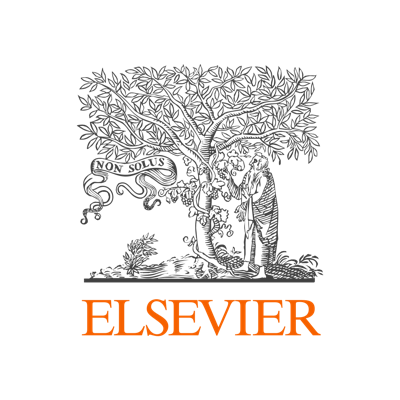

Recent searches
Institutions, conferences, journals gallery.
40,000+ journal templates to choose from for your next paper
Flexible pricing plans that caters to everyone’s needs
Plagiarism check
Detect plagiarism early. Powered by Turnitin.
Journal Submission
Get accepted in top journals.
For Publishers
Streamline publishing process with automated workflows
Client Stories
Read what our clients have yielded with our products and services
Convert from Word
Word file to JATS XML, PMC XML, DOAJ XML and more
Convert from PDF
PDF file to SciELO XML, CrossRef XML and more
Convert from JATS XML
JATS XML to Redalyc XML, DataCite XML and more
Adhere to standard of all global publishing bodies
Compliance for medical journals in PubMed database
Generate standardized XML for SciELO indexed journals

Thesis/Dissertation Template for University of Malaya — Template for authors
— or sign up using email —
Thesis/Dissertation Template for University of Malaya

Guideline source: View
All company, product and service names used in this website are for identification purposes only. All product names, trademarks and registered trademarks are property of their respective owners.
Use of these names, trademarks and brands does not imply endorsement or affiliation. Disclaimer Notice
Approved by publishing and review experts on SciSpace, this template is built as per for Thesis/Dissertation Template for University of Malaya formatting guidelines as mentioned in UM author instructions. The current version was created on and has been used by 964 authors to write and format their manuscripts to this journal.

SciSpace is a very innovative solution to the formatting problem and existing providers, such as Mendeley or Word did not really evolve in recent years.
- Andreas Frutiger, Researcher, ETH Zurich, Institute for Biomedical Engineering
(Before submission check for plagiarism via Turnitin)
What to expect from SciSpace?
Speed and accuracy over ms word.
With SciSpace, you do not need a word template for Thesis/Dissertation Template for University of Malaya.
It automatically formats your research paper to UM formatting guidelines and citation style.
You can download a submission ready research paper in pdf, LaTeX and docx formats.

Time taken to format a paper and Compliance with guidelines
Plagiarism Reports via Turnitin
SciSpace has partnered with Turnitin, the leading provider of Plagiarism Check software.
Using this service, researchers can compare submissions against more than 170 million scholarly articles, a database of 70+ billion current and archived web pages. How Turnitin Integration works?

Freedom from formatting guidelines
One editor, 100K journal formats – world's largest collection of journal templates
With such a huge verified library, what you need is already there.

Easy support from all your favorite tools
Automatically format and order your citations and bibliography in a click.
SciSpace allows imports from all reference managers like Mendeley, Zotero, Endnote, Google Scholar etc.
Frequently asked questions
1. can i write thesis/dissertation template for university of malaya in latex.
Absolutely not! Our tool has been designed to help you focus on writing. You can write your entire paper as per the Thesis/Dissertation Template for University of Malaya guidelines and auto format it.
2. Do you follow the Thesis/Dissertation Template for University of Malaya guidelines?
Yes, the template is compliant with the Thesis/Dissertation Template for University of Malaya guidelines. Our experts at SciSpace ensure that. If there are any changes to the journal's guidelines, we'll change our algorithm accordingly.

3. Can I cite my article in multiple styles in Thesis/Dissertation Template for University of Malaya?
Of course! We support all the top citation styles, such as APA style, MLA style, Vancouver style, Harvard style, and Chicago style. For example, when you write your paper and hit autoformat, our system will automatically update your article as per the Thesis/Dissertation Template for University of Malaya citation style.
4. Can I use the Thesis/Dissertation Template for University of Malaya templates for free?
Sign up for our free trial, and you'll be able to use all our features for seven days. You'll see how helpful they are and how inexpensive they are compared to other options, Especially for Thesis/Dissertation Template for University of Malaya.
5. Can I use a manuscript in Thesis/Dissertation Template for University of Malaya that I have written in MS Word?
Yes. You can choose the right template, copy-paste the contents from the word document, and click on auto-format. Once you're done, you'll have a publish-ready paper Thesis/Dissertation Template for University of Malaya that you can download at the end.
6. How long does it usually take you to format my papers in Thesis/Dissertation Template for University of Malaya?
It only takes a matter of seconds to edit your manuscript. Besides that, our intuitive editor saves you from writing and formatting it in Thesis/Dissertation Template for University of Malaya.
7. Where can I find the template for the Thesis/Dissertation Template for University of Malaya?
It is possible to find the Word template for any journal on Google. However, why use a template when you can write your entire manuscript on SciSpace , auto format it as per Thesis/Dissertation Template for University of Malaya's guidelines and download the same in Word, PDF and LaTeX formats? Give us a try!.
8. Can I reformat my paper to fit the Thesis/Dissertation Template for University of Malaya's guidelines?
Of course! You can do this using our intuitive editor. It's very easy. If you need help, our support team is always ready to assist you.
9. Thesis/Dissertation Template for University of Malaya an online tool or is there a desktop version?
SciSpace's Thesis/Dissertation Template for University of Malaya is currently available as an online tool. We're developing a desktop version, too. You can request (or upvote) any features that you think would be helpful for you and other researchers in the "feature request" section of your account once you've signed up with us.
10. I cannot find my template in your gallery. Can you create it for me like Thesis/Dissertation Template for University of Malaya?
Sure. You can request any template and we'll have it setup within a few days. You can find the request box in Journal Gallery on the right side bar under the heading, "Couldn't find the format you were looking for like Thesis/Dissertation Template for University of Malaya?”
11. What is the output that I would get after using Thesis/Dissertation Template for University of Malaya?
After writing your paper autoformatting in Thesis/Dissertation Template for University of Malaya, you can download it in multiple formats, viz., PDF, Docx, and LaTeX.
12. Is Thesis/Dissertation Template for University of Malaya's impact factor high enough that I should try publishing my article there?
To be honest, the answer is no. The impact factor is one of the many elements that determine the quality of a journal. Few of these factors include review board, rejection rates, frequency of inclusion in indexes, and Eigenfactor. You need to assess all these factors before you make your final call.
13. What is Sherpa RoMEO Archiving Policy for Thesis/Dissertation Template for University of Malaya?

- Pre-prints as being the version of the paper before peer review and
- Post-prints as being the version of the paper after peer-review, with revisions having been made.
14. What are the most common citation types In Thesis/Dissertation Template for University of Malaya?
15. how do i submit my article to the thesis/dissertation template for university of malaya, 16. can i download thesis/dissertation template for university of malaya in endnote format.
Yes, SciSpace provides this functionality. After signing up, you would need to import your existing references from Word or Bib file to SciSpace. Then SciSpace would allow you to download your references in Thesis/Dissertation Template for University of Malaya Endnote style according to Elsevier guidelines.
with Thesis/Dissertation Template for University of Malaya format applied
Fast and reliable, built for complaince.
Instant formatting to 100% publisher guidelines on - SciSpace.

No word template required
Typset automatically formats your research paper to Thesis/Dissertation Template for University of Malaya formatting guidelines and citation style.

Verifed journal formats
One editor, 100K journal formats. With the largest collection of verified journal formats, what you need is already there.

Trusted by academicians

I spent hours with MS word for reformatting. It was frustrating - plain and simple. With SciSpace, I can draft my manuscripts and once it is finished I can just submit. In case, I have to submit to another journal it is really just a button click instead of an afternoon of reformatting.


IMAGES
VIDEO
COMMENTS
research report, dissertation or thesis. Minor variation of the format as recommended by the faculty is allowed. Candidates are advised to discuss with their supervisors to determine which format is best suited for the nature of their research work. 1.1 Conventional Format The conventional format follows the traditional monograph structure ...
Thesis/Dissertation Template for University of Malaya. Approved by publishing and review experts on SciSpace, this template is built as per for Thesis/Dissertation Template for University of Malaya formatting guidelines as mentioned in UM author instructions. The current version was created on and has been used by 964 authors to write and ...